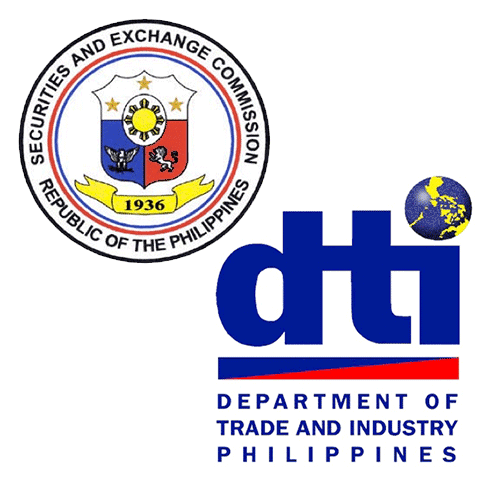
There is now a growing number of like-minded entrepreneurs in the country. It seems that people are learning not to depend on a single income. Most people are trying to establish a business apart from having a job. However, many people get turned off with all the bureaucratic and administrative requirements that have to be processed.
Let’s face it, if you do not know where and how to go about all these permits and documentary requirements, chances are you will be wasting a big chunk of your time and money. The following sections will educate you on which agencies you should go to when securing a permit for your small scale business or huge investment.
Agencies and the Type of Business They Cater

1. Department of Trade and Industry (DTI)
If you are the sole proprietor of your business, you will be required to secure a permit from this agency. The agency will then give you a certificate of registration that shows the business name. The business can either be registered at the regional or the provincial offices of the agency.
There is also a possibility to apply for a permit via the website. It would be more efficient if you download all the necessary documents from the site, fill them out immediately before heading to the office. If you do not know the nearest DTI office to your place, then you can consult this page of their website.
2. Securities and Exchange Commission (SEC)
This is the agency that caters to corporation or business with multiple stockholders. If you are doing business with someone else as partners, you will also need to secure a certificate from this agency. To start the registration process, you will need to find a name and check it on SEC website to see if no other businesses bear the same name. You can reserve the name up to 40 days, but you will need to pay for it.
You can then head to the office to process the document. It takes a minimum of one month for the registration to be processed. Remember that for a corporation, you will likewise have to head to the Cooperative Development Authority for another certification.
3. Barangay Hall
You will also have to secure your barangay clearance. Even a sari-sari store is now required to be registered even at the barangay level. Get in touch with your barangay secretary to secure this requirement. You will show at least a photocopy of your DTI or SEC certificate. You need not pay anything for this certification. Some barangay officials may also have to inspect the place of business.
4. Local Government Unit (LGU)
This is where the long queues begin. However, if you have all the necessary requirements with you, then you could save a lot of time, too. Make sure that you have all the documents issued by aforementioned agencies.
In securing for a Mayor’s Permit, you will also be required to secure Fire Clearance, Sanitary Permit, and even health clearances depending on the type of business you opt to open. To get the fire clearance, you will have to go to the nearest Bureau of Fire Protection within your municipality or town.
Locational clearance, notarized lease contract, or proof of ownership of land are also among the basic requirements you have to bring with you. Environmental clearance is also a requirement, particularly when your business is to be put up close to a residential or agricultural zones.
There are fees to be paid for all of these requirements and you will be asked to renew your permit annually. Always keep these requirements visible by posting them on the wall of your establishments.
5. Bureau of Internal Revenue (BIR)
Regardless of the business you are putting up– whether it is just as a small business in the Philippines or a grand one, you will have to secure a business taxpayer’s identification number (TIN). To attend a seminar on taxation is also a requirement.
You will also be required to have your receipts printed and stamped by BIR official before your business becomes operational. Your ledgers and printed receipts can only be stamped if a certificate of attendance is shown.
6. Department of Labor and Employment
If your business would require employing more than 5 workers (including yourself), then you will need to register your business with DOLE. You will also be required to register your workers to Social Security System, Philhealth, and HDMF for the mandatory government requirements.
These are probably the easiest of the process as you may simply ask your employees to provide you with their details. For first-time workers, you may ask them to apply for their SSS and TIN and remind them to bring NSO authenticated birth certificate and another proof of identity when applying. However, your business itself should have its own SSS identification number.
As business registration in the Philippines is still done manually, a lot of patience and time are required to complete the process. You need to a lot approximately 3-5 months to complete the entire process as some certifications take the time to be released.
For instance, when registering for SEC certificate, the agency will have to review the by-laws and counter-check the financial documents. As for the environmental permits, inspection is also required. There are also now some private entities or law firms who also provide the service of registering your business on your behalf.
As a rule of thumb, always do an advanced research and bring all necessary documents before heading to the agency. Never trust a fixer to do the job for you. Lastly, take the extra mile and exert a lot of effort so you could register the potentially best business in the Philippines.
Jack is a self-made entrepreneur, who actually started out in the Military, then worked for the Government for a few years, until he finally made that bold step and started out his own online and offline businesses. He’s never looked back ever since, and hasn’t been happier…




